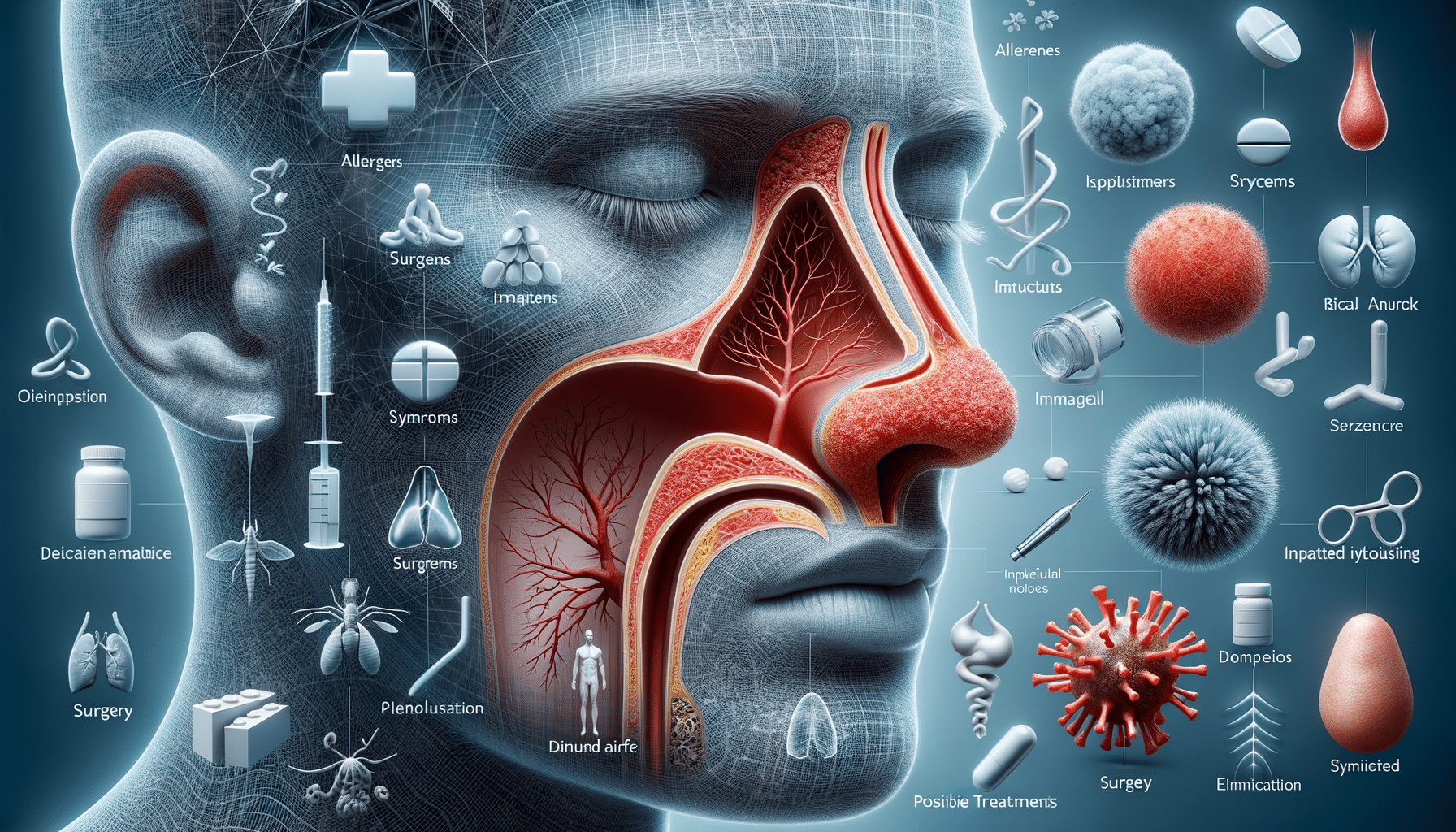
Navigating Nasal Polyps: Understanding Causes, Symptoms, and Treatments
Introduction to Nasal Polyps
Nasal polyps are a common condition affecting many individuals worldwide. These noncancerous growths develop on the lining of the nasal passages or sinuses due to chronic inflammation. While they are not life-threatening, nasal polyps can significantly impact one’s quality of life, causing breathing difficulties, frequent infections, and a diminished sense of smell. Understanding the nature of nasal polyps is crucial for effective management and treatment.
These growths often result from underlying conditions such as allergies, asthma, or chronic sinusitis. They can vary in size, and larger polyps can block nasal passages, leading to further complications. Despite their prevalence, many people remain unaware of nasal polyps until symptoms become severe, highlighting the importance of awareness and early diagnosis.
Causes and Risk Factors
Nasal polyps arise from prolonged inflammation in the nasal passages or sinuses. Several factors contribute to their development, including:
- Chronic sinus infections: Repeated infections can irritate the nasal passages, promoting polyp formation.
- Allergies: Allergic reactions can cause persistent inflammation, increasing the risk of polyps.
- Asthma: Individuals with asthma are more prone to developing nasal polyps due to ongoing respiratory inflammation.
- Genetic predisposition: A family history of nasal polyps or related conditions can increase susceptibility.
- Age: While polyps can occur at any age, they are more common in adults over 40.
Understanding these risk factors is essential for prevention and management. By addressing underlying conditions and reducing exposure to allergens, individuals can lower their risk of developing nasal polyps.
Symptoms and Diagnosis
The symptoms of nasal polyps can vary depending on their size and location. Common signs include:
- Persistent nasal congestion: A feeling of blockage in the nasal passages is a frequent complaint.
- Runny nose: Excess mucus production can lead to a constant runny nose.
- Reduced sense of smell: Polyps can interfere with olfactory function, diminishing the ability to smell.
- Facial pain or pressure: Larger polyps can cause discomfort in the face or head.
- Frequent sinus infections: Blocked sinuses can lead to recurring infections.
Diagnosis typically involves a physical examination and imaging tests such as a CT scan to assess the size and location of the polyps. An accurate diagnosis is crucial for developing an effective treatment plan.
Treatment Options
Treatment for nasal polyps aims to reduce inflammation, shrink the polyps, and manage symptoms. Options include:
- Medications: Corticosteroid nasal sprays are commonly prescribed to reduce inflammation and shrink polyps. Oral steroids may be used for more severe cases.
- Surgery: In cases where medication is ineffective, surgical removal of polyps may be necessary. Endoscopic surgery is a minimally invasive option that can provide relief.
- Management of underlying conditions: Treating conditions like allergies or asthma can help prevent polyp recurrence.
- Home remedies: Nasal saline rinses can help keep nasal passages clear and reduce symptoms.
Choosing the right treatment involves a thorough evaluation by a healthcare professional to determine the most appropriate approach for each individual.
Living with Nasal Polyps
Managing nasal polyps requires ongoing attention to symptoms and triggers. Here are some strategies for living with this condition:
- Follow your treatment plan: Adhering to prescribed medications and therapies is essential for controlling symptoms.
- Avoid allergens: Identifying and minimizing exposure to allergens can help reduce inflammation.
- Maintain good nasal hygiene: Regular nasal rinses can keep passages clear and reduce the risk of infections.
- Monitor symptoms: Keeping track of changes in symptoms can help identify triggers and prevent complications.
By taking proactive steps and working closely with healthcare providers, individuals with nasal polyps can lead a comfortable and fulfilling life.
Conclusion
Nasal polyps may be a common condition, but they can have a significant impact on one’s daily life. By understanding the causes, symptoms, and treatment options, individuals can take control of their health and manage this condition effectively. Early diagnosis and a comprehensive treatment plan are key to minimizing the impact of nasal polyps and maintaining a good quality of life.


